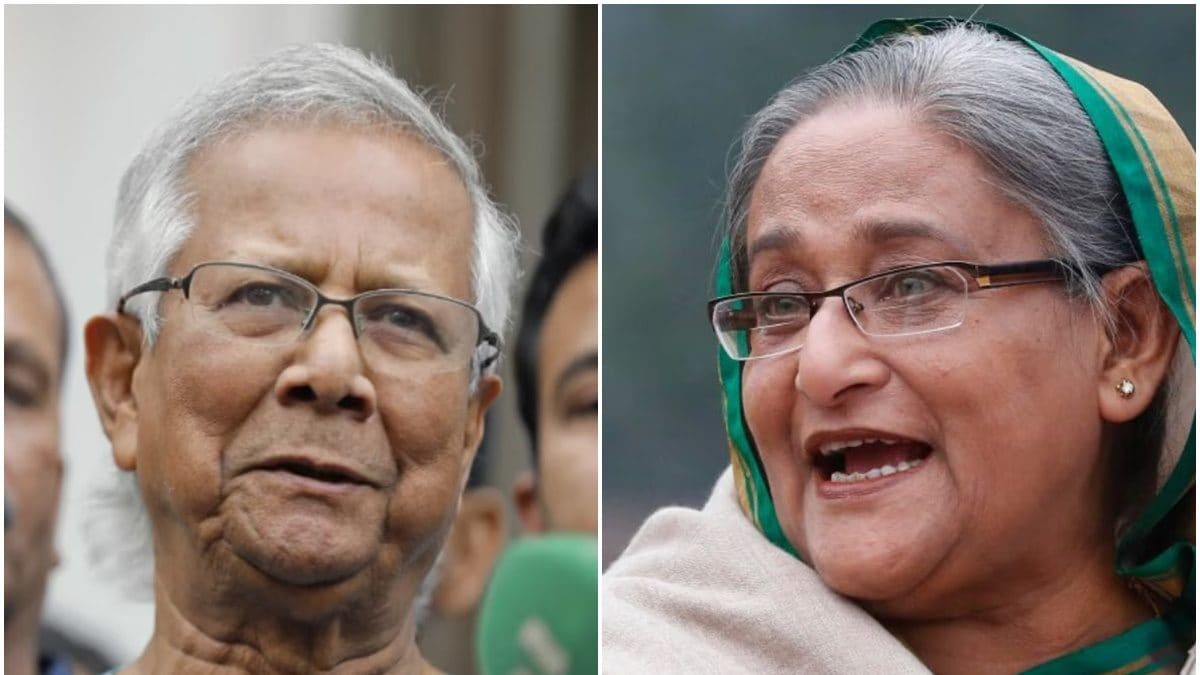The recent events in Bangladesh paint a concerning picture of rising anti-Hindu sentiment and escalating tensions within the country. The situation has been aggravated by the Jamat-e-Islami’s alleged actions against Hindus, which have included threats, forced displacement, and even attacks on religious sites. This article delves into the complexities of this situation, exploring the motivations behind these actions and their potential implications for both Bangladesh and its regional relations, particularly with India.
The Rise of Anti-Hindu Sentiment
The recent video surfacing of Hindu women crying over restrictions on their access to public spaces and markets, along with threats of forced departure, reflects a growing anti-Hindu sentiment in Bangladesh. The Jamat-e-Islami, a political party known for its conservative views, has been accused of orchestrating these actions, highlighting a worrying trend of religious intolerance and discrimination.
The Role of the Jamat-e-Islami
Sources have alleged that the Jamat-e-Islami has been targeting Hindus, pushing them out of their communities, and even forcing teachers to resign from their positions. The group has also been accused of vandalizing Sufi shrines, demonstrating its disregard for religious sensitivities. This aggressive posture towards Hindus raises serious concerns about the safety and well-being of this minority group within Bangladesh.
The Fear Factor
The fear instilled in Hindu women, as seen in the video, reflects the deep-seated fear that they experience within their communities. Being threatened to leave their homes and country instills a sense of insecurity and helplessness. This fear factor underscores the immediate need for intervention and protection for Hindus in Bangladesh.
Political Undercurrents and International Implications
The unfolding crisis in Bangladesh is intertwined with political dynamics within the country, particularly surrounding the former prime minister Sheikh Hasina’s tenure. Her government’s ties with India and the alleged actions of the Jamat-e-Islami against Hindus have triggered concerns about regional stability and international repercussions.
India’s Dilemma
The current political situation in Bangladesh poses a difficult challenge for India. On one hand, the Indian government has a vested interest in maintaining stability and good relations with its neighbor, given their shared borders and strategic interests. On the other hand, India faces pressure to respond to the escalating crisis, especially given the alleged persecution of Hindus. The current situation necessitates a careful balancing act for India, aiming to protect its national interests while addressing the humanitarian concerns of the Hindu community in Bangladesh.
The Potential Impact on Regional Relations
The deteriorating situation in Bangladesh could significantly impact regional relations, particularly with India. The rise of anti-Hindu sentiment and the alleged actions of the Jamat-e-Islami could escalate tensions, leading to instability and a potential for cross-border conflicts. India’s response, therefore, will be crucial in shaping the future of its relationship with Bangladesh.
The International Community’s Response
While the international community has expressed concerns over the situation in Bangladesh, the immediate response remains largely inadequate. It is crucial that global actors play a more active role in addressing the crisis.
A Call for Action
The United Nations and other international organizations need to intensify their efforts to monitor the situation in Bangladesh and pressure the current government to uphold human rights and ensure the safety of all citizens, including the Hindu community.
The Path Forward
The crisis in Bangladesh requires immediate action to protect the rights of minorities and ensure the country’s stability. Addressing the issues of anti-Hindu sentiment and the activities of the Jamat-e-Islami is critical.
Addressing the Roots of the Problem
Addressing the root causes of religious intolerance and discrimination is paramount. This involves promoting dialogue, education, and interfaith harmony. Ensuring equal rights and opportunities for all citizens is essential for a cohesive and peaceful society.
International Support
The international community must continue to monitor the situation and advocate for a solution. Diplomatic engagement, economic pressure, and the threat of sanctions could encourage the current government to take a more constructive approach.
Take Away Points
The current crisis in Bangladesh serves as a stark reminder of the fragility of religious tolerance and the importance of protecting minority rights. The rise of anti-Hindu sentiment is a disturbing trend that threatens to destabilize the country and its relationships with its neighbors.
- The alleged actions of the Jamat-e-Islami highlight a disturbing trend of religious intolerance and discrimination in Bangladesh.
- The current political landscape in Bangladesh, marked by the political turmoil and alleged persecution of Hindus, necessitates a nuanced and strategic approach from the international community.
- The international community must act decisively to address the crisis, ensuring the protection of minorities and promoting peace and stability in Bangladesh.
- Addressing the root causes of religious intolerance and discrimination through education, dialogue, and the promotion of equal rights for all citizens is essential.
- The situation in Bangladesh is a reminder of the interconnectedness of regional security and stability and underscores the need for proactive engagement by the international community.




